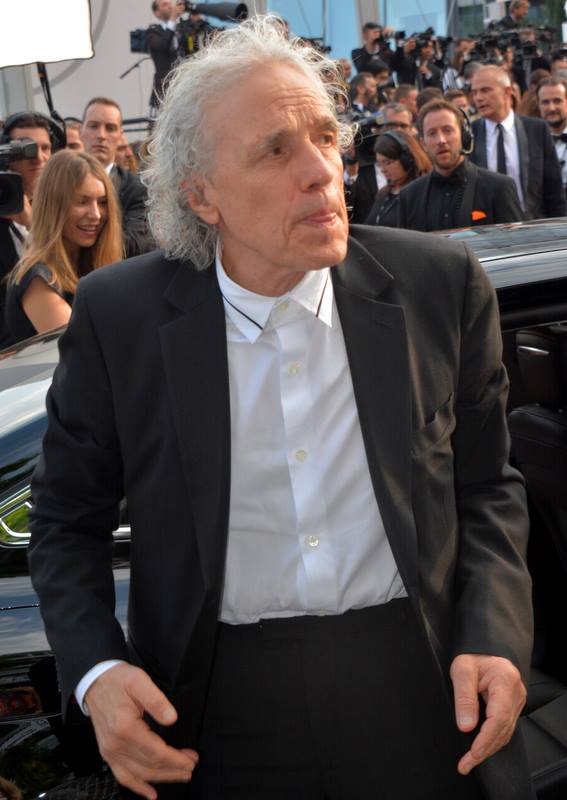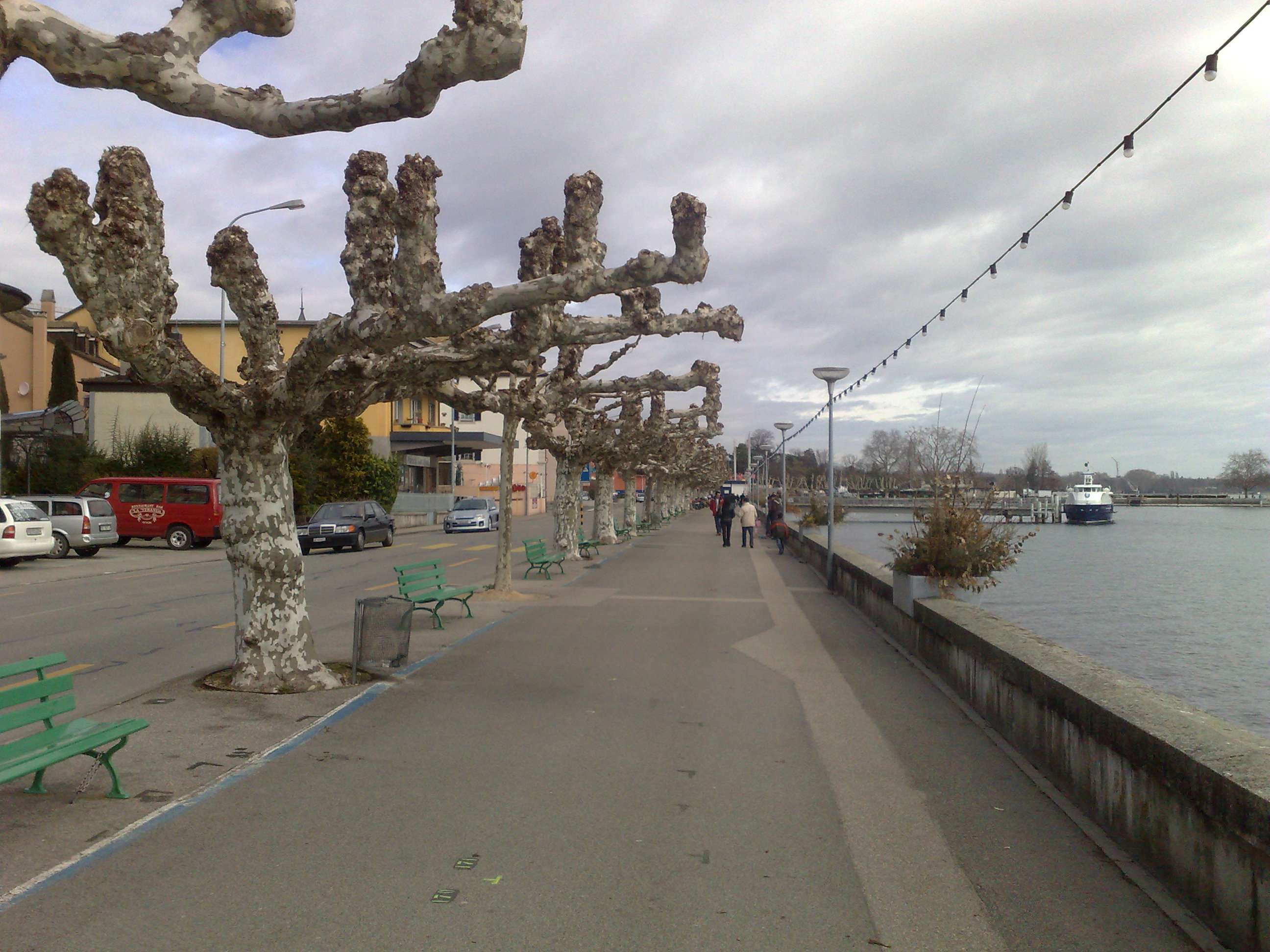|
Horse Money
''Horse Money'' (Portuguese: ''Cavalo Dinheiro'') is a 2014 Portuguese film directed by Pedro Costa. It premiered in August 2014 at the Locarno International Film Festival, where it won the award for Best Direction. Horse Money is the fourth film in a sequence of films set in the Fontainhas slum region in Lisbon, and the second with character Venturas as the protagonist. Plot Ventura, an elderly Cape Verdean immigrant living in Lisbon travels through the night, through real and imagined nightmarish memories. Release ''Horse Money'' was in competition for the Golden Leopard at the 2014 Locarno International Film Festival. Critical response The film received critical acclaim. Matt Zoller Seitz, a film critic for '' RogerEbert.com'', gave the film three and a half out of four stars, stating that "the best approach o ''Horse Money''is to surrender to it as you might a dream and let the images overwhelm you." The international film magazine ''Sight & Sound'' named it the third best f ... [...More Info...] [...Related Items...] OR: [Wikipedia] [Google] [Baidu] |
Pedro Costa
Pedro Costa (born 30 December 1958) is a Portuguese film director. He is best known for his sequence of films set in Lisbon, which focuses on the lives of the impoverished residents of a slum in the Fontainhas neighbourhood. Biography After completing a degree in History from the University of Lisbon, Costa worked as an assistant for Jorge Silva Melo, Vítor Gonçalves and João Botelho. He released his debut film O Sangue at the age of 30. Costa's films would receive acclaim from critics consistently throughout his career. He collected the France Culture Award (Foreign Cineaste of the Year) at 2002 Cannes Film Festival for directing ''In Vanda's Room''. ''Colossal Youth'' was selected for the 2006 Cannes Film Festival and earned the Independent/Experimental prize (Los Angeles Film Critics Association) in 2008. Horse Money was awarded the Leopard for Best Director in 2014, while his Vitalina Varela was awarded the Gold Leopard for Best Film in 2019. Style and influences He is ... [...More Info...] [...Related Items...] OR: [Wikipedia] [Google] [Baidu] |
Locarno International Film Festival
The Locarno Film Festival is an annual film festival, held every August in Locarno, Switzerland. Founded in 1946, the festival screens films in various competitive and non-competitive sections, including feature-length narrative, documentary, short, avant-garde, and retrospective programs. The Piazza Grande section is held in an open-air venue that seats 8,000 spectators. The top prize of the festival is the Golden Leopard, awarded to the best film in the International Competition. Other awards include the Leopard of Honour for career achievement, and the Prix du Public, the public choice award. History The Festival del film Locarno kicked off on 23 August 1946, at the Grand Hotel of Locarno with the screening of the movie ''O sole mio'' by Giacomo Gentilomo. The first edition was organized in less than three months with a line-up of fifteen movies, mainly American and Italian, among which was ''Rome, Open City'' directed by Roberto Rossellini, ''And Then There Were None'' dire ... [...More Info...] [...Related Items...] OR: [Wikipedia] [Google] [Baidu] |
Portuguese Language
Portuguese ( or, in full, ) is a western Romance language of the Indo-European language family, originating in the Iberian Peninsula of Europe. It is an official language of Portugal, Brazil, Cape Verde, Angola, Mozambique, Guinea-Bissau and São Tomé and Príncipe, while having co-official language status in East Timor, Equatorial Guinea, and Macau. A Portuguese-speaking person or nation is referred to as " Lusophone" (). As the result of expansion during colonial times, a cultural presence of Portuguese speakers is also found around the world. Portuguese is part of the Ibero-Romance group that evolved from several dialects of Vulgar Latin in the medieval Kingdom of Galicia and the County of Portugal, and has kept some Celtic phonology in its lexicon. With approximately 250 million native speakers and 24 million L2 (second language) speakers, Portuguese has approximately 274 million total speakers. It is usually listed as the sixth-most spoken language, the third-most sp ... [...More Info...] [...Related Items...] OR: [Wikipedia] [Google] [Baidu] |
Best Direction Award (Locarno International Film Festival)
The Best Direction Award is an award given at the Locarno International Film Festival The Locarno Film Festival is an annual film festival, held every August in Locarno, Switzerland. Founded in 1946, the festival screens films in various competitive and non-competitive sections, including feature-length narrative, documentary, sh .... It is awarded to the best directed film in the international competition section. Award Winners References External links * {{Locarno International Film Festival Locarno Festival Swiss film awards Lists of films by award ... [...More Info...] [...Related Items...] OR: [Wikipedia] [Google] [Baidu] |
Golden Leopard
The Golden Leopard () is the top prize at the Locarno International Film Festival, an international film festival held annually in Locarno, Switzerland since 1946. Directors in the process of getting an international reputation are allowed to be entered in the competitive selection. The winning films are chosen by a jury. The award went under many names until it was named the ''Golden Leopard'' in 1968. The festival was not held in 1951 and the prize was not awarded in 1956 and 1982. As of 2009 René Clair and Jiří Trnka Jiří Trnka (; 24 February 1912 – 30 December 1969) was a Czechs, Czech puppet-maker, illustrator, motion-picture animator and film director. In addition to his extensive career as an illustrator, especially of children's books, he is ... are the only two directors to have won the award twice, both of them winning in consecutive years. Golden Leopard winners For the first two years the award was known as ''Best Film'' (''Miglior film''). Then for ... [...More Info...] [...Related Items...] OR: [Wikipedia] [Google] [Baidu] |
Matt Zoller Seitz
Matt Zoller Seitz (born December 26, 1968) is an American film and television critic, author and film-maker. Career Matt Zoller Seitz is editor-at-large at RogerEbert.com, and the television critic for '' New York'' magazine and Vulture.com, as well as a member of the George Foster Peabody Awards board of jurors. He was previously a television critic at Salon.com and ''The Newark Star Ledger'', and a film critic for ''The New York Times''. Prior to this he was a regular media columnist for the ''Dallas Observer''. He founded the film and media criticism blog ''The House Next Door''. Seitz is known as a leader in the creation of video essays, frequently featured on ''Moving Image Source'' and ''The L Magazine'', and served as the publisher of ''PressPlay'', a site for video-based film and television criticism. He was a finalist for the 1994 Pulitzer Prize for Criticism. Seitz's second book, ''The Wes Anderson Collection'', was published by Abrams Books in 2013. In February 2015, ... [...More Info...] [...Related Items...] OR: [Wikipedia] [Google] [Baidu] |
RogerEbert
''RogerEbert.com'' is an American film review website that archives reviews written by film critic Roger Ebert for the ''Chicago Sun-Times'' and also shares other critics' reviews and essays. The website, underwritten by the ''Chicago Sun-Times'', was launched in 2002. Ebert handpicked writers from around the world to contribute to the website. After Ebert died in 2013, the website was relaunched under Ebert Digital, a partnership founded between Ebert, his wife Chaz, and friend Josh Golden. Background Two months after Ebert's death, Chaz Ebert hired film and television critic Matt Zoller Seitz as editor-in-chief for the website because his IndieWire blog PressPlay shared multiple contributors with RogerEbert.com, and because both websites promoted each other's content. ''The Dissolve''s Noel Murray described the website's collection of Ebert reviews as "an invaluable resource, both for getting some front-line perspective on older movies, and for getting a better sense of who ... [...More Info...] [...Related Items...] OR: [Wikipedia] [Google] [Baidu] |
Sight & Sound
''Sight and Sound'' (also spelled ''Sight & Sound'') is a British monthly film magazine published by the British Film Institute (BFI). It conducts the well-known, once-a-decade ''Sight and Sound'' Poll of the Greatest Films of All Time, ongoing since 1952. History and content ''Sight and Sound'' was first published in Spring 1932 as "A quarterly review of modern aids to learning published under the auspices of the British Institute of Adult Education". In 1934 management of the magazine was handed to the nascent British Film Institute (BFI), which still publishes the magazine today. ''Sight and Sound'' was published quarterly for most of its history until the early 1990s, apart from a brief run as a monthly publication in the early 1950s, but in 1991 it merged with another BFI publication, the ''Monthly Film Bulletin'', and started to appear monthly. In 1949, Gavin Lambert, co-founder of film journal ''Sequence'', was hired as the editor, and also brought with him ''Sequence ... [...More Info...] [...Related Items...] OR: [Wikipedia] [Google] [Baidu] |
Boyhood (2014 Film)
''Boyhood'' is a 2014 American epic coming-of-age drama film written and directed by Richard Linklater, and starring Patricia Arquette, Ellar Coltrane, Lorelei Linklater, and Ethan Hawke. Filmed from 2002 to 2013, ''Boyhood'' depicts the childhood and adolescence of Mason Evans Jr. (Coltrane) from ages six to eighteen as he grows up in Texas with divorced parents (Arquette and Hawke). Richard Linklater's daughter Lorelei plays Mason's sister, Samantha. Production began in 2002 and finished in 2013, with Linklater's goal to make a film about growing up. The project began without a completed script, with only basic plot points and the ending written initially. Linklater developed the script throughout production, writing the next year's portion of the film after rewatching the previous year's footage. He incorporated changes he saw in each actor into the script, while also allowing all major actors to participate in the writing process by incorporating their life experiences into ... [...More Info...] [...Related Items...] OR: [Wikipedia] [Google] [Baidu] |
Goodbye To Language
''Goodbye to Language'' (french: Adieu au Langage) is a 2014 French-Swiss 3D experimental narrative essay film written and directed by Jean-Luc Godard. It stars Héloïse Godet, Kamel Abdeli, Richard Chevallier, Zoé Bruneau, Jessica Erickson and Christian Grégori and was shot by cinematographer Fabrice Aragno. It is Godard's 42nd feature film and 121st film or video project. In the French-speaking parts of Switzerland where it was shot, the word "adieu" can mean both goodbye and hello. The film depicts a couple having an affair. The woman's husband discovers the affair and the lover is killed. Two pairs of actors portray the couple and their actions repeat and mirror one another. Godard's own dog Roxy Miéville has a prominent role in the film and won a prize at the Cannes Film Festival. Like many of Godard's films, it includes numerous quotes and references to previous artistic, philosophical and scientific works, most prominently those of Jacques Ellul, Aleksandr Solzhenits ... [...More Info...] [...Related Items...] OR: [Wikipedia] [Google] [Baidu] |
Leviathan (2014 Film)
''Leviathan'' (, ''Leviafan'') is a 2014 Russian crime drama film directed by Andrey Zvyagintsev, co-written by Zvyagintsev and Oleg Negin, and starring Aleksei Serebryakov (actor), Aleksei Serebryakov, Elena Lyadova, and Vladimir Vdovichenkov. According to Zvyagintsev, the story of Marvin Heemeyer's 2004 rampage through a small US town using a modified bulldozer inspired him. A similar concept was adapted into a Russian setting. The character development of the protagonist parallels a biblical figure Job (biblical figure), Job and the story of Naboth's Vineyard. The producer Alexander Rodnyansky has said: "It deals with some of the most important social issues of contemporary Russia while never becoming an artist's sermon or a public statement; it is a story of love and tragedy experienced by ordinary people". Critics noted the film as being formidable, dealing with quirks of fate, power and money. The film was selected to compete for the Palme d'Or in the main competition se ... [...More Info...] [...Related Items...] OR: [Wikipedia] [Google] [Baidu] |





